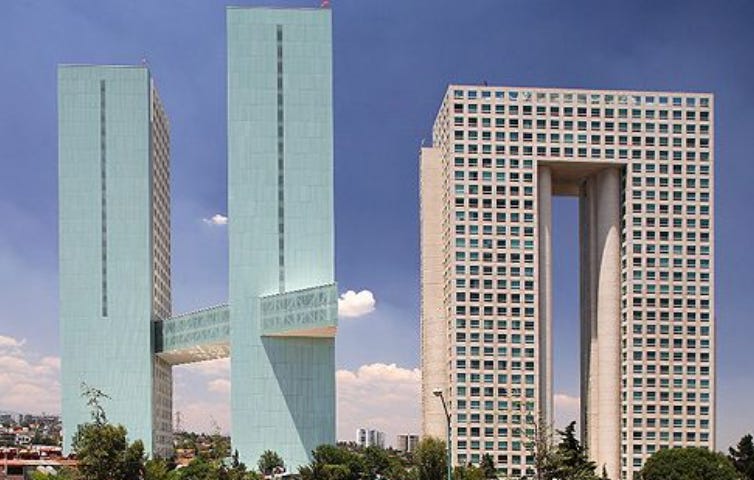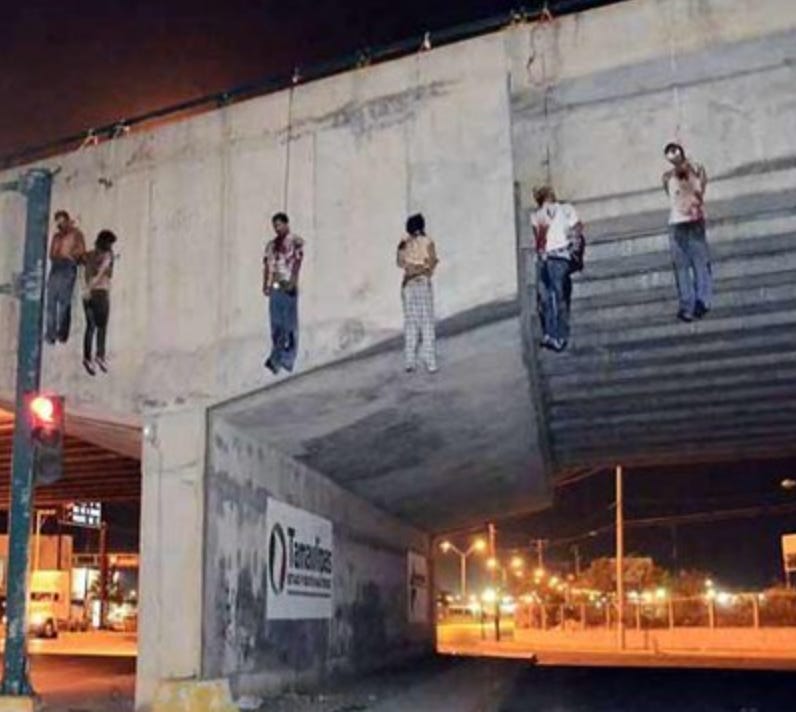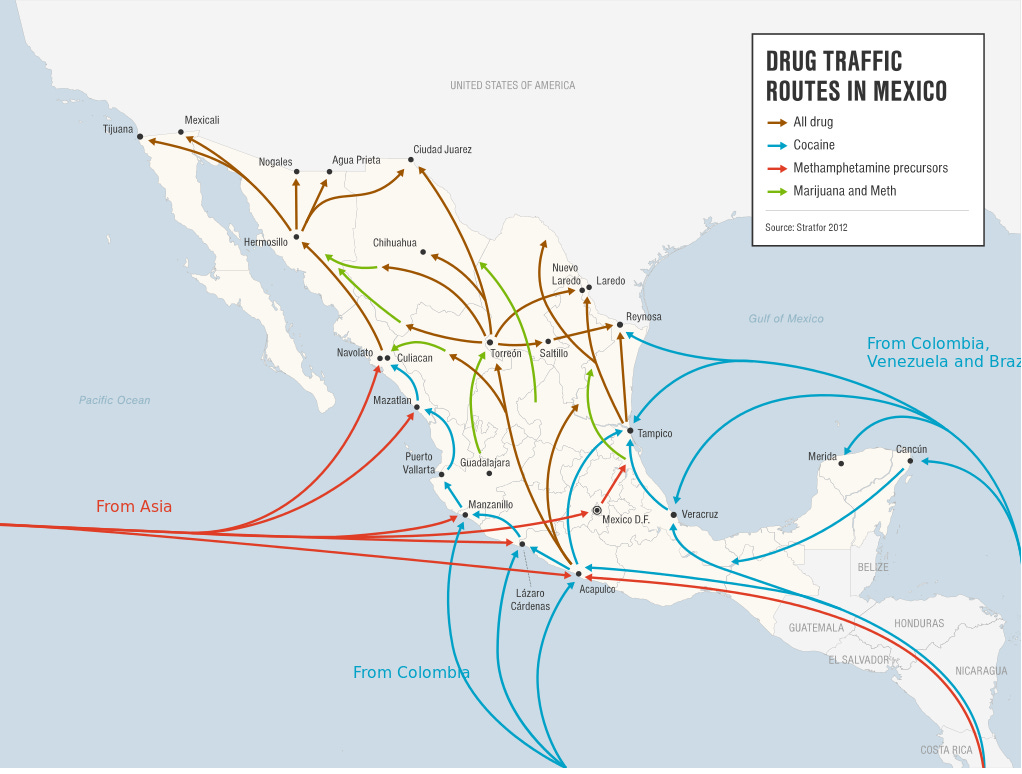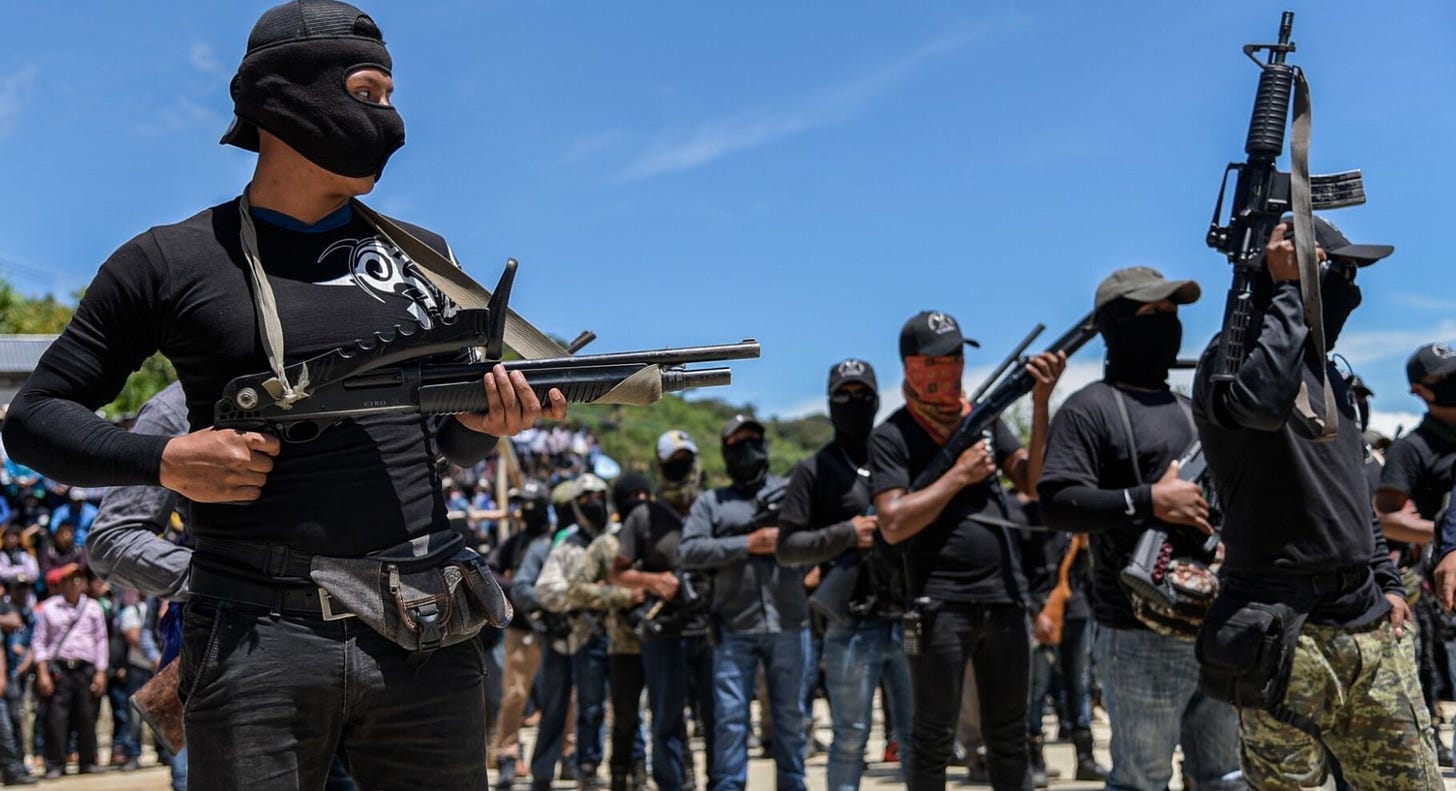Mexico has just overtaken Canada and China as America’s top trading partner. It has also surpassed most members of the G20 in 2023 in terms of economic growth on a per capita basis, figures which don’t even include its shadow economy or the value of illegal drugs that transit through the country into the United States. The facts are that, crime aside, Mexico grows economically because it replaces China as an offshore manufacturing haven. Factories in its industrialized north can export to the U.S. tariff-free, including Chinese-owned ones, and this trade advantage is behind an economic boom that began in 2020. Since then, Mexico’s GDP per capita (129 million people) has increased from $8,770 to $15,071 in 2024 and heads toward $17,287 by 2028. Tourism, agriculture, and retirement havens also contribute to this growth, but figures also reflect the income made by those who work for, or service, Mexican drug cartels. Today, there are two Mexicos — one firing legitimately on all economic cylinders — and the other feeding America’s bottomless appetite for illicit drugs. One is creating a prosperous middle class and the other undermines Mexican institutions and turns parts of the country into a war zone.
On January 17, 2024, the Yucatan Times reported that 30,000 murders, mostly drug-related, were committed in Mexico in 2023, an average of 84 daily. “In total, President Andrés Manuel López Obrador’s six-year term has accumulated 166,193 murders and 4,892 femicides since December 2018,” according to figures from the Executive Secretariat of the National Public Security System (SESNSP).” The figures are shocking, but Mexico has always had a violent, troubled history, mostly due to drug smuggling.
I have been to Mexico as a journalist dozens of times since 1990, as it slowly got out from under rampant corruption and crime. That year, I covered negotiations between former Mexican President Carlos Salinas de Gortari and President George H. W. Bush that resulted in Mexico’s inclusion to the 1989 Canada-US trade deal. More trips followed: To write about corruption, its indigenous uprising in Chiapas, its democratic struggles, crooked elections, business scandals, and human rights issues. Along the way, I have interviewed Presidents, politicians, journalists, guerrillas, activists, and businessmen. It’s been a helluva ride, including an interview in the jungle with Subcommandante Marcos who led the Mayan uprising in 1994 and another with its richest citizen, Carlos Slim, just days after his kidnapping ordeal ended.
During this time, Mexico has made great strides. In 1990, it was a dangerous “socialist” and secular dictatorship, run by a left-wing party that had ruled corruptly since 1910. The Communist Manifesto was adopted there decades ago, and the Roman Catholic Church’s power and assets were nationalized. For decades, journalists disappeared, corruption flourished, education was limited, elections were rigged, the media was censured, and the country’s economy was propped up by giant, state-owned oil and mining companies. Mexico’s so-called private-sector was controlled by oligarchic families, such as the “Grupo Diez” in Monterey — until many of their offspring, such as President de Gortari, attended Ivy League schools and hired technocrats to drag Mexico into the 21st century. Its media became unfettered, elections were fairer, and the free trade deal was signed which attracted the capital that created its current economy.
Free trade broke through Mexico’s “populist” and historical distrust and hatred toward the Big Gringo to the North. The bad blood dated back to the Mexican-American War in 1846, when Americans invaded and annexed Texas, but now the Mexican Drug War and illegal migration afflicts the bilateral relationship. The United States has been unable to help Mexico interdict or break up these criminal networks, despite allocating billions to Mexico City to fight and strengthen its institutions. This is because the cause is America’s excessive drug habit and porous border. The only solution is to seal the border shut, except for legitimate trade and travel, and to legalize drugs and treat addiction.
Until then, the cartels will remain enormous enterprises that also import, then re-export, drugs from all over the world into the United States plus firearms and people. Republican Presidential candidate, and former U.N. Ambassador, Nikki Haley has presented the only quick remedy. “When it comes to the cartels, we should treat them like the terrorists that they are," Haley told Fox News in a recent interview. "I would send special operations in there [Mexico] and eliminate them just like we eliminated ISIS and make sure that they know there's no place for them. If Mexico won't deal with it, I'll make sure I deal with it.”
Last March, a similar proposal was made by Republicans in Congress, but Mexican President Obrador immediately rejected intervention. During a news conference, he said his government was “not going to permit any foreign government to intervene in our territory, much less that a government’s armed forces intervene. In addition to being irresponsible, it is an offence to the people of Mexico,” he said, adding that Mexico “does not take orders from anyone”.
… That is, except from cartels, apparently.
Mexico’s establishment, and much of its society, is intimidated by the cartels but many also benefit. Estimates are that drug lords employ 450,000 directly and 3.2 million indirectly, mostly in poorer regions. The cartels are also multinationals, with huge distribution and manufacturing networks in the US and Europe, and global partnerships. Collectively, they have taken over large swaths of Central and South America by undermining their governments, militaries, and courts. (Read my August piece American Narco State Capture.) The biggest profit maker is cocaine from Colombia, but the Mexican smugglers have a 70-per-cent market share of all the meth, cannabis, opioids, and heroin in the US. And it’s this enormous wealth that has infiltrated Mexico’s law enforcement agencies, courts, and banks and likely is embedded in America’s. They now employ paramilitaries.
This criminalized Mexico thrives in the shadows, but the rest of the country is safe, and enjoyable, for millions of locals, tourists, and retirees — as long as they avoid its “no-go zones”. Unfortunately, these regions grow and, if unchecked, will turn the country into a failed state. “Let’s talk about 40 percent of the national territory where the State no longer governs, a 40 percent that is slowly spreading,” said retired Mexican Major General Luis Garfias Magaña, in the newsmagazine, Proceso, back in 2011. More recently, as “bandidos” grab more regions, civilian vigilantes have taken the law into their owns hands and formed militias to fend off traffickers in their regions.
In essence, Mexico is fighting against becoming captive to its criminal elements and this is why Nikki Haley is not wrong: The Pentagon must, and should, become involved inside Mexico, and the US border must be militarized going forward. The U.S. has leverage over Mexico and must use it or be increasingly held hostage by violent criminals. The problem of attaining mutual respect and sharing good governance is not impossible, but has been elusive for centuries. As the 19th century Mexican dictator Porfirio Diaz once said: “Poor Mexico, so far from God, so close to the United States.”








Another excellent piece, Diane, and another good reason to vote for Nikki Haley.
However, it is hard to imagine how any Mexican politician would agree to allow any armed U.S. forces to go about liquidating Mexican cartels. There are plenty of politicians who would benefit by invoking Mexican nationalism against the U.S. and - together with cartels and their huge popular and financial support - start "returning fire" until most of the remaining 60% becomes largely ungovernable. The situation has grown beyond simple military force and may even - with prodding from our more distant enemies trigger a war between the U.S. and Mexico in which the U.S. can not win.
There must be an overriding, long-term strategy building support within Mexico itself for joint U.S.-Mexican forces declaring war on the cartels as the key to true Mexican "independence". There must be stroking of populist sentiment against either "gringo" control or internal (oligarchic/cartel) control of Mexico.....a true war of liberation in which the U.S. is on the side of the Mexican people and those Mexican politicians who are committed to the rule of law. Simply giving money to Mexico will not work because of the extent of infiltration by cartels and the inability of the government itself to organize nationwide popular support for such an effort. The U.S. must become the secure sanctuary from which both Mexican and U.S. personnel work together to create and implement a multi-faceted strategy encompassing all of Mexico.
We enjoy the presence of a large Mexican community here in the U.S. Those are the personnel we should be recruiting for purpose of propaganda, representation, military training, grass-root support from people back home, etc.......somewhat similar to the early U.S. efforts in Cuba but without premature embarking on raids. Also - because of the enormous profits Mexican businessmen and influential families derive from legitimate trade and commerce with the U.S., - we have powerful leverage in enlisting their support to fund the right politicians, enlist their employees, and make the whole undertaking take on the appearance of a national crusade......for human dignity. It is only when the cartels run up against powerful, unified, and "take no prisoner" native forces will we succeed in establishing as good and close ties with Mexico as we do with Canada and succeed in permanently pulling out the cartels by their roots.
To disempower the drug cartels we have to destroy the profitability of drug smuggling. To do that, the US must legalize the drugs to eliminate the "sin"-surcharge, take over their manufacture to insure safety through quality control, destigmatize treatment and make it readily available. These steps must come before any military-like action is taken because they would weaken the cartels by making their "business" model inefficient and unnecessary. Such steps might avoid the tragedy and rekindling of "bad blood" that invading Mexico would produce by using cooperation to replace the need for unilateral military action.
For over 50 years the War on Drugs has been a disastrous failure. Criminalization and prohibition have never succeeded in eliminating socially undesirable behaviors that provide individuals with easily obtained thrills or pleasure (even though those fall off quickly with drugs and are replaced with the need to avoid the pain and suffering of addiction and withdrawal). We cannot eliminate the likelihood of wasted lives and souls lost to drug use, but the problem is much worse after 50+ years of fighting a war on drugs.